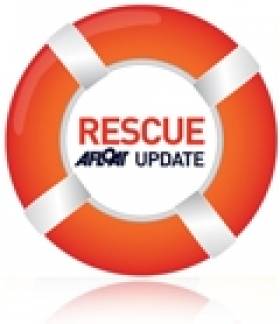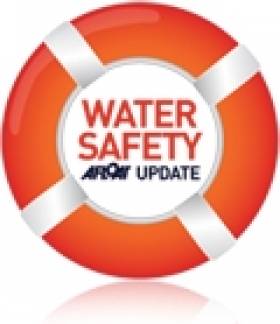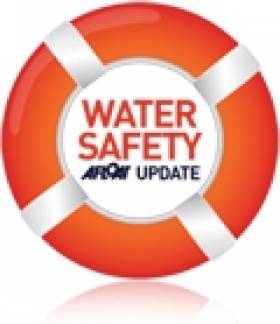Displaying items by tag: fatalities
#maritimesafety – The Minister for Transport, Tourism and Sport, Paschal Donohoe, TD, today launched a new Maritime Safety Strategy 2015 – 2019, the theme of which is 'Make Time for Maritime Safety.'
The new Strategy was developed following a consultation with key stakeholders and the general public and includes an analysis of the factors contributing to maritime fatalities in Ireland.
A link to the Maritime Safety Strategy document is HERE.
"My Department's maritime safety remit covers safety on recreational craft, including surfboards, fishing vessels and cargo ships and it is these areas which are covered by the Strategy we are launching today. Although the average annual number of marine incident-related fatalities, at 11, is low, lives continue to be lost on the water, despite regulation, inspections and training. Perhaps not surprisingly, most incidents happen in the fishing and recreational sectors. What is striking, however, is the fact that 99% of maritime fatalities are male, with an average age of 44, and that fatalities in the maritime sector are potentially avoidable.
"There is broad agreement in the sector that to reduce fatalities, the focus needs to be on changing culture and personal behaviour rather than on more regulation. While this Strategy primarily identifies actions that the Department, through the Irish Maritime Administration (IMA) will take, the important roles of individuals, families, friends and sectoral organisations are also highlighted.
"Notwithstanding the efforts of my Department in terms of preventative action, enforcement and emergency response, these efforts cannot on their own improve maritime safety. It is up to each individual who takes to the water to take personal responsibility for their actions and to understand that failure to operate safely puts not just their own life at risk, but the lives of others on board and potentially the lives of emergency and rescue personnel.
"The genesis of this Strategy was the emergence of recurring causal factors in marine casualty investigation reports and recognition of the extent to which maritime fatalities and incidents could be avoided. Among the top 10 factors identified from analysis of the Marine Casualty Investigation Board (MCIB) reports are:
· The need for an enhanced maritime safety culture
· Unsuitable or inadequately maintained safety equipment on board, or lack thereof
· Lack of crew training
· Failure to plan journeys safely, including failure to take sea/weather conditions into account
· Non-wearing of personal flotation device (lifejacket/buoyancy aid)
· Vessel unseaworthy, unstable and/or overloaded
"The 33 actions outlined in the report are grouped under five over-arching strategic objectives; Information and Communication, Search and Rescue Operations, Standards, Enforcement, Data and Evaluation. They are centred on promoting personal responsibility for maritime safety, improving search and rescue, and implementing preventative measures, including a robust inspection and regulatory framework, and an enhanced enforcement regime. They are designed, in a holistic way, to tackle the factors contributing to maritime fatalities and to ultimately reduce in the number of lives lost in the maritime sector.
"This strategy sets out in a very straightforward way, what individuals, families, friends and communities can do to ensure safety when taking to the water. This includes proper planning, operating on a safety first basis, always telling somebody where you are going and when you expect to be back, wearing suitable clothing and always wearing lifejackets and buoyance aids. The Strategy concludes by outlining what my Department can and will do to support a better maritime safety culture. I urge everyone involved in the sector to pay close heed to the Strategy's contents so that together we can reduce, and eventually eliminate, needless fatalities at sea."
Fatality Rate for Fishermen An 'Absolute Tragedy'
Fishermen and farmers make up more than half of all work-related fatalities in Ireland, according to the Minister for the Marine.
As The Irish Times reports, Simon Coveney TD decried it as an "absolute tragedy" in the Dáil.
He noted the progress being made in encouraging people to wear safety gear when on the water, but said there was "little or no progress in getting fishermen to wear lifejackets”.
"For some reason fishermen seem to think they will never fall in the water," the minister commented.
Cork South West TD Noel Harrington also raised the point of the Department of the Marine's refusal to use personal beacons that directly signal emergency services, rather than emergency position indicating radio beacons (EPIRB).
He referred to the capsizing of the Rambler 100 yacht in the Fastnet Race in August, saying that the latter did not go off to alert the coastguard as the boat had not sunk.
New Database Reveals Deaths in UK Waters
The first report from a new incident database shows that more than 400 people died from accidents or by natural causes in water across Great Britain and Northern Ireland in 2009.
The WAID (Water Incident Database) was developed by the National Water Safety Forum (NWSF) to enable greater detail and volume in collecting data on fatal and non-fatal drowning, other water-related deaths and injuries, and near misses.
Of the 405 total deaths in 2009, more than half (213) occurred in inland waters. Nearly a quarter (99) happened on the coast or in a harbour, dock, marina or port, while one in seven deaths (57) happened further out at sea.
There were 19 deaths as a result of incidents in baths, five in swimming pools and one involving a water container. Eleven people died in places that are not usually watercourses, such as flooded areas.
The most commonly reported activity, which accounted for 78 fatalities, was someone entering the water while walking or running, for example to cool off or by falling.
Saturday was noted the most common day and August the most common month for fatalities to occur.
David Walker of the NWSF and the Royal Society for the Prevention of Accidents said: “Managing water risks is all about a balance between giving people freedom to make informed choices about how to enjoy water and the impact those choices have on society in general."
He added: "By providing better information, WAID will assist in striking that balance and enable us to develop more effective prevention work.”
WAID was developed by NWSF member agencies and bodies in partnership with the UK Department for Transport. For more information and to view the report visit www.nationalwatersafety.org.uk.



























































